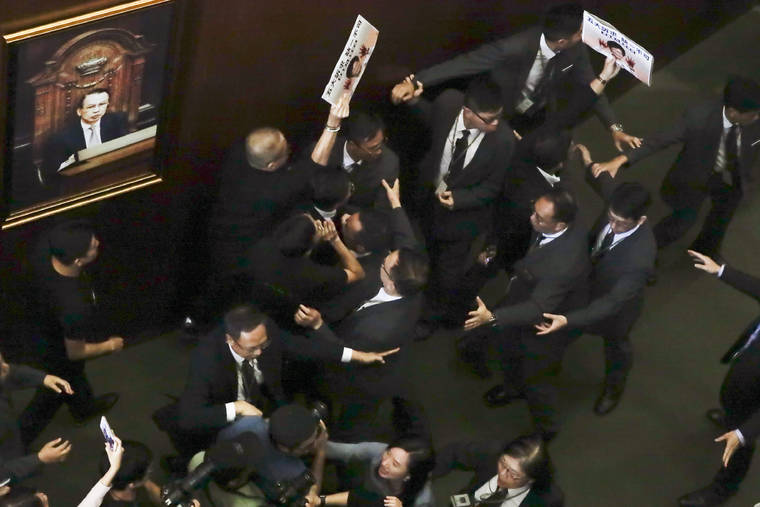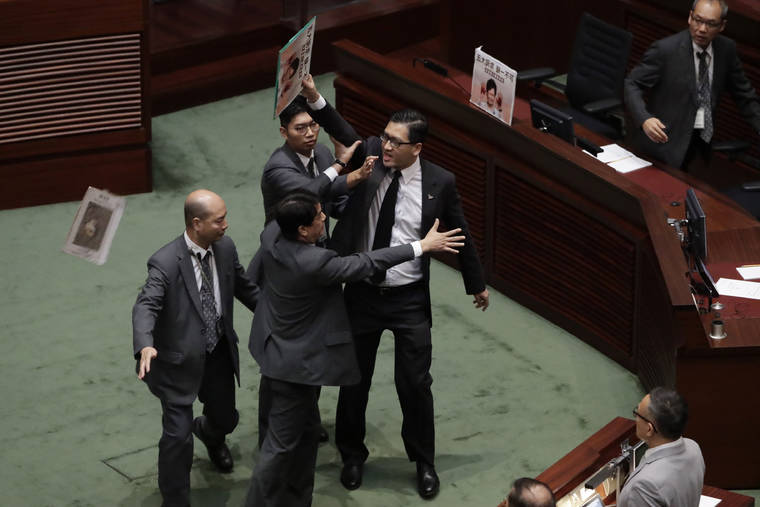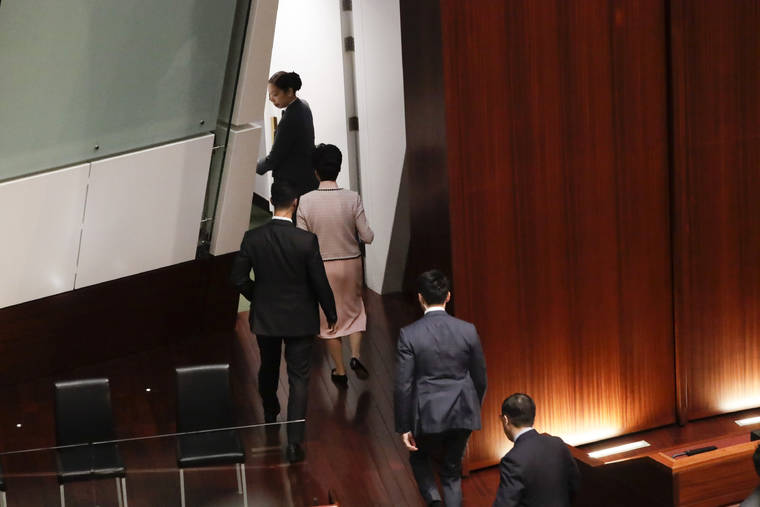HONG KONG — In chaotic scenes, furious pro-democracy lawmakers twice forced Hong Kong’s leader to stop delivering a speech laying out her policy objectives and clamored for her to resign after she walked out of the legislature on Wednesday and then delivered the annual address 75 minutes late via television.
Carrie Lam’s inability to deliver her policy address inside the Legislative Council marked a slap in the face for the embattled chief executive grappling with anti-government protests now in their fifth month.
Lam had already started delivering the speech when chanting pro-democracy lawmakers forced an interruption. She left the chamber and then came back a few minutes later to try again, only to be interrupted one more time. Again, she left. One lawmaker tossed a placard as Lam was leaving.
Finally, 75 minutes after the previously scheduled start of the lengthy address, Lam delivered it via video link, with China’s yellow-starred red flag to her right and Hong Kong’s flag on her left.
Describing the semi-autonomous Chinese territory as going through “major crisis,” Lam said: “People are asking: Will Hong Kong return to normal?”
She appealed for its 7.5 million citizens to “cherish the city,” warning that “continued violence and spread of hatred will erode the core values of Hong Kong.”
She then launched into a detailed explanation of plans to tackle Hong Kong’s shortage of affordable housing, a long-standing source of discontent.
At an impromptu news conference outside the chamber after successfully thwarting the address there, lawmakers played a recording on a small loudspeaker they said was the sound of police tear-gassing protesters and of protesters screaming.
“These are the voices of people screaming and they are just ordinary Hong Kong people,” said lawmaker Tanya Chan. “Please, please, please Mrs. Carrie Lam, don’t let us suffer any more.”
She and others called for Lam’s resignation. “This is the only way that we can have a good future,” said Chan.
Lam had been bracing for trouble in the chamber as her government battles the protests that started in June over a contested extradition bill and have snowballed into a sustained anti-government, anti-police and anti-China movement.




